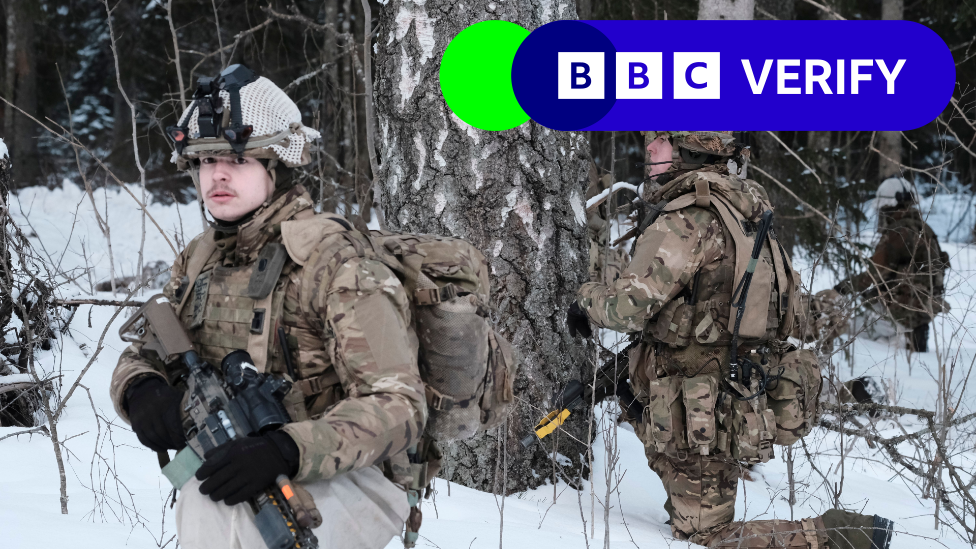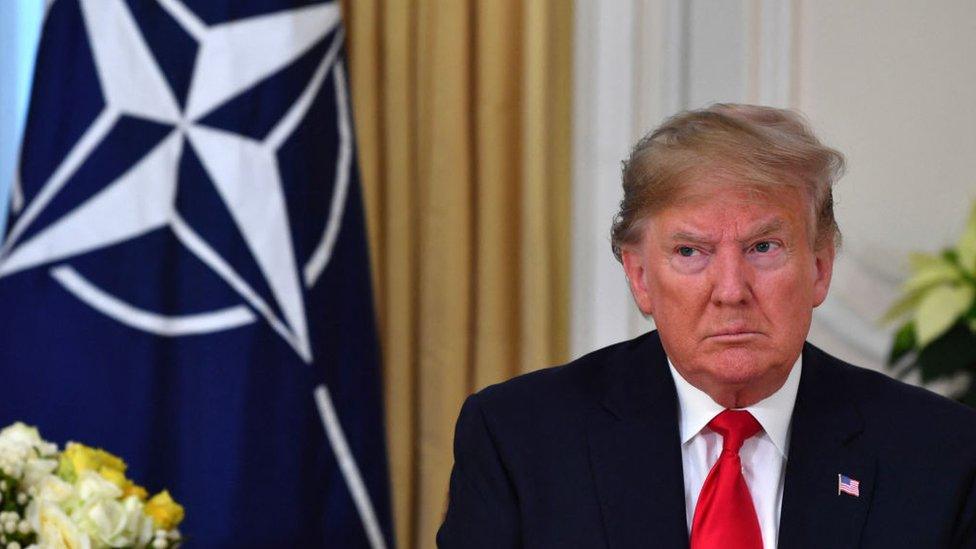Chris Mason: The politics of defence in a dangerous world
- Published
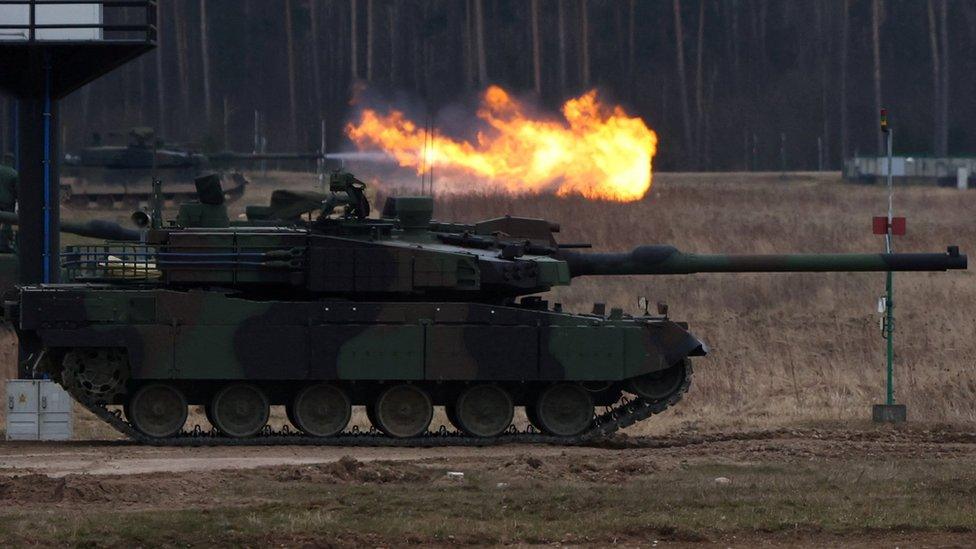
In the cool, spring sunshine of a Polish military base, a noisy and smoky tank performs a 90-degree turn, the metal of its caterpillar tracks scraping along the concrete.
Creatures of war had become backdrops for the politics of defence.
A dangerous world is colliding with a general election year.
In the years after the Cold War, many western countries reaped a peace dividend.
A safer world, the logic went, meant money previously spent on soldiers, war planes and aircraft carriers could instead be spent on the health service or schools.
Or taxes could be cut.
But how things have changed.
There is conflict in the Middle East. And war in Europe.
Rishi Sunak travelled here to meet his Polish opposite number Donald Tusk, and the secretary general of the defence alliance Nato, Jens Stoltenberg.
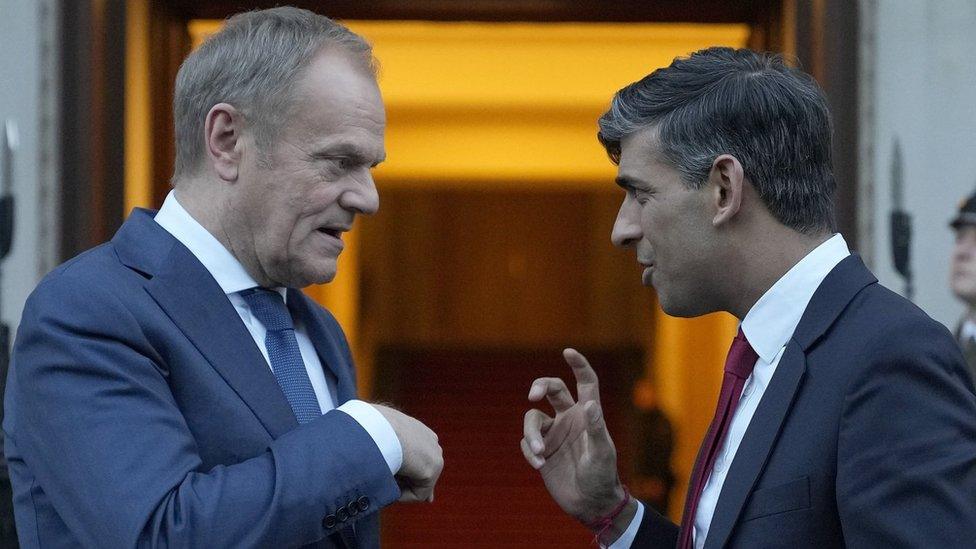
But the prime minister came here with an announcement in his pocket too.
One alive to the threats the UK faces internationally, and the domestic threats he faces politically.
And if you're talking about a spending commitment, who better to have in tow than the Chancellor Jeremy Hunt, as well as the Defence Secretary Grant Shapps?
Mr Sunak said he wanted to increase defence spending to 2.5% of national income by 2030.
The government estimates the total rise - taking into account assumed economic growth - means an extra £75bn over the next six years.
The prime minister is wrapping the plan in grand rhetoric, and yes, if delivered, it would amount to a significant cranking up in spending devoted to defence.
And, he claims, it is "fully funded with no increase in borrowing or debt".
Ben Zaranko of the Institute for Fiscal Studies unpacks some of the numbers and the wider challenges here, external.
The Conservatives say they have accounted for their numbers.
A sizeable chunk of it comes from cutting jobs in the civil service to pre-pandemic levels. Ministers reckon this amounts to a fall in the headcount of around 70,000.
They argue that additional staff were needed to get through the pandemic and deliver Brexit, but they are not needed now.
Enter next, Labour. A central plank of Sir Keir Starmer's attempt to reinvent his party has been to cloak himself in the union flag (or indeed the St George's flag for St George's Day) and emphasise his commitment to the armed forces.
He has been pictured in combat fatigues.
He emphasised Labour's commitment to Nato.
Quite the contrast with Jeremy Corbyn.
'Political arms race'
But on funding, his promise is not as concrete as the Conservative one.
Labour has promised to increase defence spending to 2.5% of national income when "resources allow".
How will they respond now, having been outflanked by the Conservatives?
In the hours immediately after the prime minister's speech, shadow cabinet ministers appeared unsure.
But the fact that Westminster's two biggest parties are in a political arms race on defence tells you rather a lot of what you need to know about the state of the world.
"It has costs to have Russia as a neighbour.
"There is no way we can run away from that cost. You have to pay. We have to understand that the most expensive alternative is to allow Putin to win in Ukraine because then we will live in a much more dangerous world," the Nato Secretary General told me.
Yes, the leader of a defence alliance is always likely to want more money for their cause.
But it is a sobering observation.
- Published23 April 2024
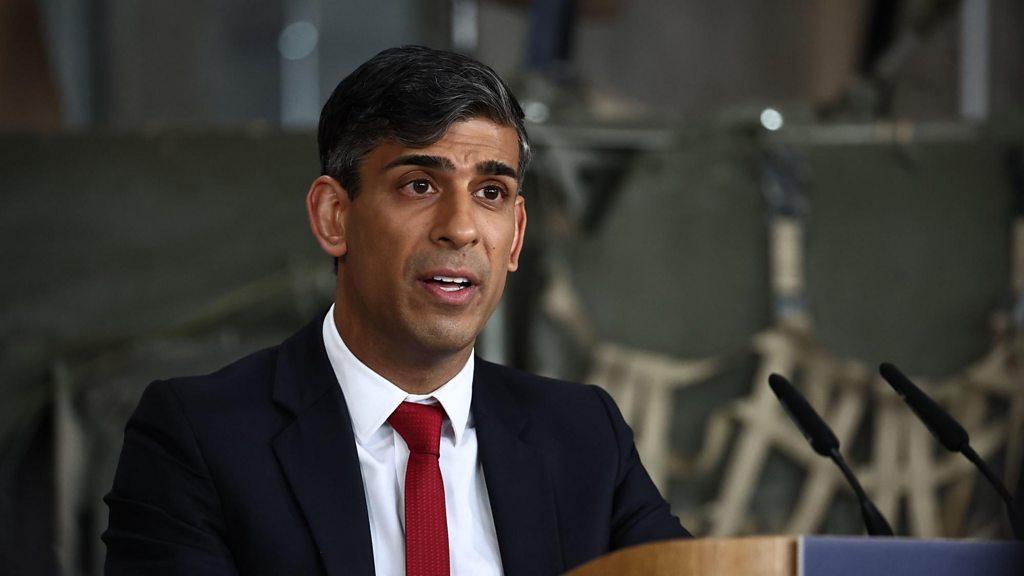
- Published18 February
